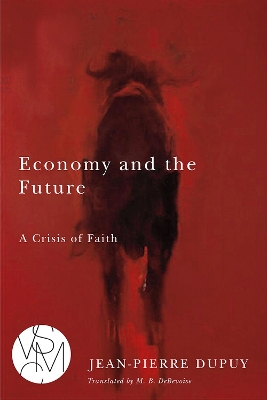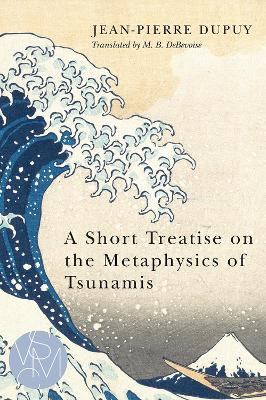Studies in Violence, Mimesis, and Culture
2 total works
A monster stalks the earth - a sluggish, craven, dumb beast that takes fright at the slightest noise and starts at the sight of its own shadow. This monster is the market. The shadow it fears is cast by a light that comes from the future: the Keynesian crisis of expectations. It is this same light that causes the world's leaders to tremble before the beast. They tremble, Jean-Pierre Dupuy says, because they have lost faith in the future.
What Dupuy calls Economy has degenerated today into a mad spectacle of unrestrained consumption and speculation. But in its positive form-a truly political economy in which politics, not economics, is predominant-Economy creates not only a sense of trust and confidence but also a belief in the open-endedness of the future without which capitalism cannot function.
In this devastating and counterintuitive indictment of the hegemonic pretensions of neoclassical economic theory, Dupuy argues that the immutable and eternal decision of God has been replaced with the unpredictable and capricious judgment of the crowd. The future of mankind will therefore depend on whether it can see through the blindness of orthodox economic thinking.
What Dupuy calls Economy has degenerated today into a mad spectacle of unrestrained consumption and speculation. But in its positive form-a truly political economy in which politics, not economics, is predominant-Economy creates not only a sense of trust and confidence but also a belief in the open-endedness of the future without which capitalism cannot function.
In this devastating and counterintuitive indictment of the hegemonic pretensions of neoclassical economic theory, Dupuy argues that the immutable and eternal decision of God has been replaced with the unpredictable and capricious judgment of the crowd. The future of mankind will therefore depend on whether it can see through the blindness of orthodox economic thinking.
In 1755 the city of Lisbon was destroyed by a terrible earthquake. Almost 250 years later, an earthquake beneath the Indian Ocean unleashed a tsunami whose devastating effects were felt over a vast area. In each case, a natural catastrophe came to be interpreted as a consequence of human evil. Between these two events, two indisputably moral catastrophes occurred: Auschwitz and the bombing of Hiroshima and Nagasaki. And yet the nuclear holocaust survivors likened the horror they had suffered to a natural disaster - a tsunami.
Jean-Pierre Dupuy asks whether, from Lisbon to Sumatra, mankind has really learned nothing about evil. When moral crimes are unbearably great, he argues, our ability to judge evil is gravely impaired, and the temptation to regard human atrocity as an attack on the natural order of the world becomes irresistible. This impulse also suggests a kind of metaphysical ruse that makes it possible to convert evil into fate, only a fate that human beings may choose to avoid.
Postponing an apocalyptic future will depend on embracing this paradox and regarding the future itself in a radically new way. The American edition of Dupuy’s classic essay, first published in 2005, also includes a postscript on the 2011 nuclear accident that occurred in Japan, again as the result of a tsunami.
Jean-Pierre Dupuy asks whether, from Lisbon to Sumatra, mankind has really learned nothing about evil. When moral crimes are unbearably great, he argues, our ability to judge evil is gravely impaired, and the temptation to regard human atrocity as an attack on the natural order of the world becomes irresistible. This impulse also suggests a kind of metaphysical ruse that makes it possible to convert evil into fate, only a fate that human beings may choose to avoid.
Postponing an apocalyptic future will depend on embracing this paradox and regarding the future itself in a radically new way. The American edition of Dupuy’s classic essay, first published in 2005, also includes a postscript on the 2011 nuclear accident that occurred in Japan, again as the result of a tsunami.

